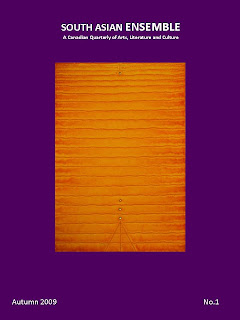South Asian Ensemble Winter-Spring 2014
Editor’s Note A lot of good South Asian writing is taking place outside the dominant circuits of recognition. It was our assumption when we started SAE . Five years down the road, it is a conclusion. Leafing through pages from the past, we see many installed stereotypes crumbling. Yet much survives that seems to identify us. What is still awaited is a radical mobilization of the elements of the ensemble that is us and our experience, a mobilization that dislocates, disassembles and creates afresh beyond merely reproducing. This would require infusion of energies from outside the ensemble’s boundaries. But haven’t cultures always outsourced? Isn’t imagination the great outsourcing machine? Isn’t literature always in another place, always already elsewhere? South Asia is a horizon that must be transcended. Only when it begins to...


